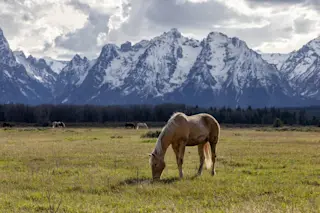“History is a bath of blood,” wrote William James, whose 1906 antiwar essay is arguably the best ever written on the subject. “Modern man inherits all the innate pugnacity and all the love of glory of his ancestors. Showing war’s irrationality and horror is of no effect on him. The horrors make the fascination. War is the strong life; it is life in extremis; war taxes are the only ones men never hesitate to pay, as the budgets of all nations show us.”
Our bloody nature, it can now be argued in the context of modern biology, is ingrained because group-versus-group competition was a principal driving force that made us what we are. In prehistory, group selection (that is, the competition between tribes instead of between individuals) lifted the hominids that became territorial carnivores to heights of solidarity, to genius, to enterprise—and to fear. Each tribe knew with justification that ...















